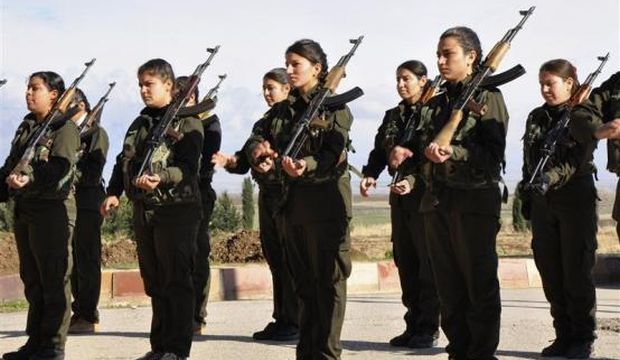Amid the worry accompanying the siege imposed by the Islamic State of Iraq and Syria (ISIS) fighters on the Syrian–Kurdish city of Kobani, Arab criticism and discontent surfaced despite the heated situation in the city and the fierce fighting on the ground.
This discontent was frank and rather rude at some points, despite all the deaths and the possibility that the city might fall.
So according to some, the city is not called Kobani but Ain Al-Arab, the Arab name for the city. Only the Arabs could seek to control the name of a city with Kurdish inhabitants. Let them stop protesting and demanding their linguistic and cultural rights as they have no choice other than to assimilate. At this point, it is also fine to admonish the media attention in Kobani and ask, “Why have you forgotten about Daraya, Homs and other Syrian cities, but remember Kobani? Is it because you suffer from an obsession with minorities while the majority suffer worse?”
Much of this unease was voiced via writers, columnists and comments stating that there is currently an “exaggerated” celebration of the Kurdish female fighters’ participation in the battles in Kobani. Those observers commented that this apparent exaggeration in celebrating these female fighters is based on some form of orientalism—God forbid!
Such criticism is treated purely as personal opinion, without any Ba’athist or nationalist undercurrent. Of course, the reality is that Kobani is besieged by complications as much as it is by ISIS—the Turkish factor mixed in with the Syrian–Kurdish factor.
We cannot deny the truth that Kobani is one more chapter in Syria’s dramatic recent history, and that other cities have suffered what Kobani has suffered, and that what the Kurds are going through is an extension of their historical suffering that does not diminish others’ sacrifices. However, this does not mean that the Kurds are destined to fail and that nobody will sympathize with them.
Kobani and its people will not bear the responsibility of the West abandoning the Syrians and leaving them to their fate against a criminal regime and its extremist fighters. What was called an “orientalist vision” in celebrating the Kurdish female fighters is also a smokescreen for this very same perspective, since those celebrating Kurdish female fighters subsequently realized that the environment which produced these fighters has also produced a high rate of honor killings. So, while noticing this apparent orientalism, who said we cannot adopt other viewpoints from the West? The West is not home solely to negative values, and when we engage in revolutions and pursue values linked to freedom and human rights, we don’t bring these values from the East.
Those criticizing our orientalism should go and check Google to find out how many Syrian cities and non-Kurdish Syrian women have been celebrated.
It is true that the rest of the world is treating the Syrian people unjustly and not working seriously to end their ordeal. But celebrating Kobani did not bring about an orientalist rhetoric, rather a deep-rooted Ba’athist and nationalist one. There will be no freedom for us, the Kurds and all other peoples in the region unless we get rid of this kind of rhetoric, just like we hope to get rid of ISIS and tyrannical regimes.
